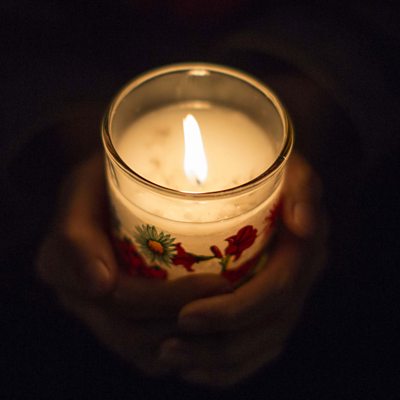Episode details

Available for over a year
Today, Jews around the world mark the memorial for October 7th, two years since the attacks that tore through what should have been a day of joy. In the Jewish calendar, the attacks took place on Simchat Torah, the festival that marks both an ending and a beginning. Now, as this year’s Simchat Torah ends, the joy is replaced with a memorial. On Simchat Torah, we reach the final words of the Torah —the Five Books of Moses —and then, without pause, roll the scroll back to the very beginning to read the story of creation once more. It is a ritual that insists the world can begin again, that learning and hope must never stop, even in darkness. That difference in time matters. Time in Judaism is not a straight line. It moves like a coil, circling forward, gathering what has been and carrying it into what might yet be. Each year we return to the same stories, the same losses and longings, but we return changed. The Hebrew word for year, shanah, means both to repeat and to change. That tension lies at the heart of this moment: the pull between repetition and renewal. Two years ago, on Simchat Torah itself, celebration turned to catastrophe. The singing stopped, replaced by sirens and disbelief. Since then, the circle of grief has widened, from the trauma of Israel’s murdered and kidnapped to the destruction in Gaza, where families and neighbourhoods have been lost. The grief is no longer one people’s story; it is the grief of two, bound together in tragedy. This week, as a ceasefire takes hold and hostages return home, there is relief and reunion — but also unbearable absence. And fear that it may not last. The quiet feels precious and fragile, as though any sound could break it. Ecclesiastes says there is nothing new under the sun. It is hard not to escape that weariness, that sense that we have been here before. But the turning of the Torah teaches that even in repetition, change is possible. That creation begins not once, but again and again. The scroll never closes. There is no space between ending and beginning. To turn it back is an act of defiance, to keep believing in renewal when the world feels broken. The question it asks of us, Jews, Israelis, Palestinians, and all who watch from afar, is whether we can let the next turn of the coil rise a little higher than the last. Whether we can take the memory of loss and turn it into a beginning that does not repeat the same pain. To live in that hope is hard work. But perhaps that is the work of this season: to live inside the circle and still believe that something new can yet be born.
Programme Website